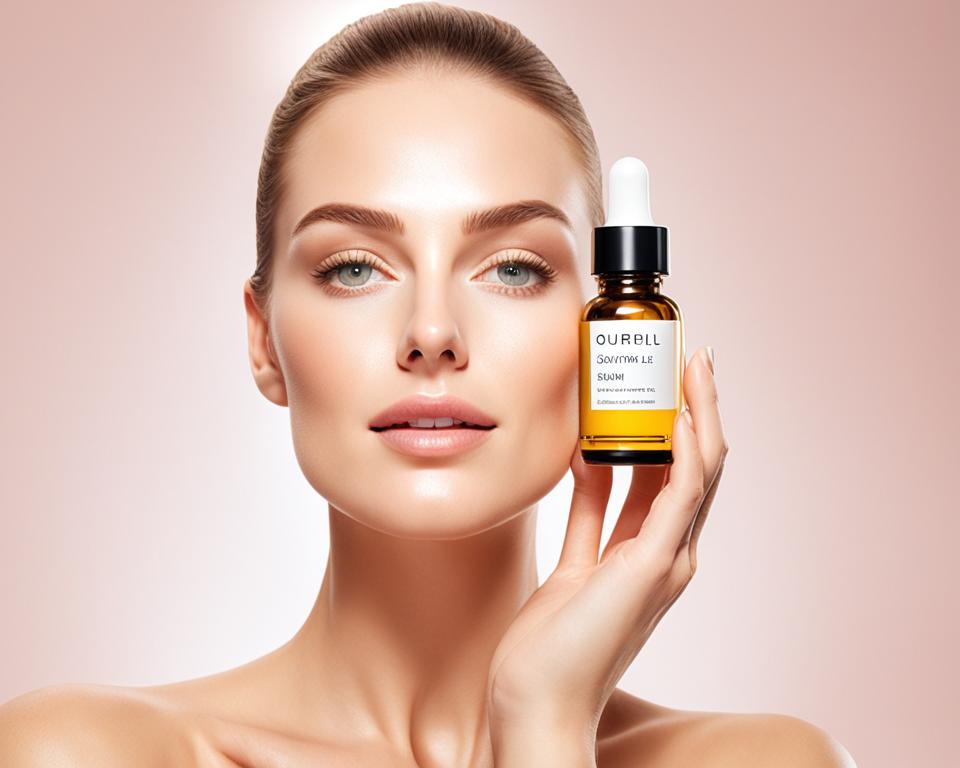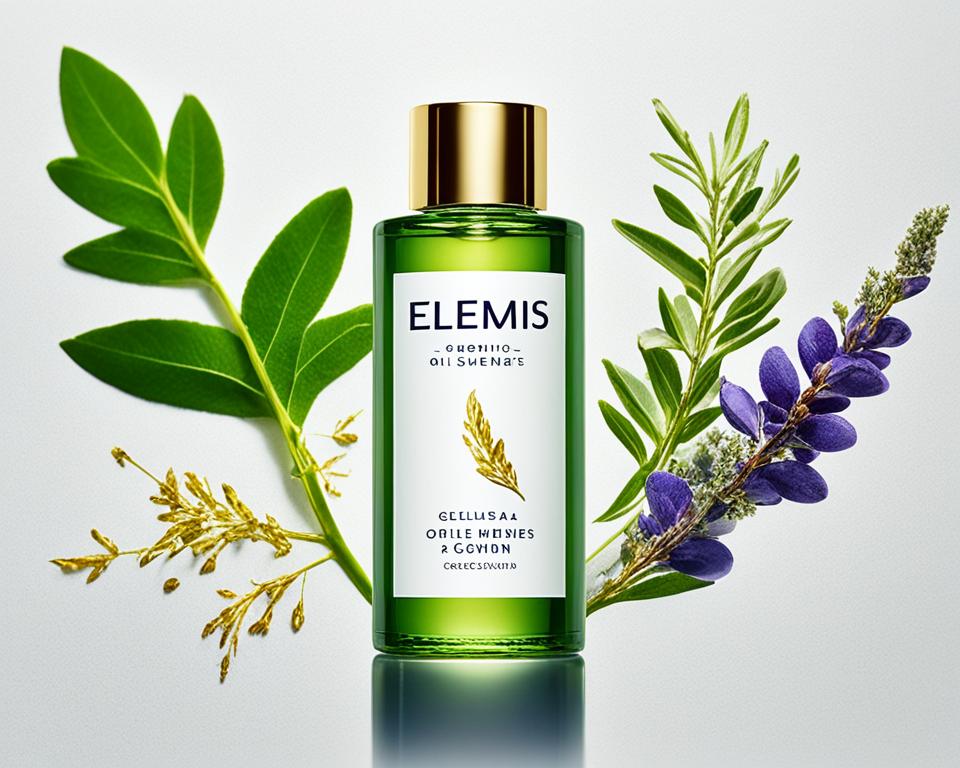Do you wonder if cats can have olive oil, given how good it is for us? Olive oil is praised for helping humans stay healthy. But when it comes to our cats, we need to be careful. Cats need different foods than we do. It’s important to look into how olive oil might affect them. Always talk to a vet before trying new things in your cat’s diet. This ensures your cat stays happy and healthy.
Key Takeaways
- Olive oil is not poisonous to cats, but it should be used sparingly.
- Understanding feline dietary safety is paramount before making any changes to your cat’s diet.
- Always seek professional pet health tips from a veterinarian when considering new foods.
- Moderation is key to introducing olive oil into a cat’s diet without causing harm.
- Observe your cat closely for any adverse reactions when adding olive oil or any new food.
Understanding Feline Dietary Needs
Cats have different dietary needs than humans. Their diet is special and must be carefully balanced to keep them healthy and active. It’s important to include all the key nutrients they need.
Comparing Human and Feline Nutrition
Humans enjoy a variety of foods, including treats. But cats need a steady diet that’s high in protein. What’s good for us might not be good for them, because cats process food differently.
Essential Nutrients for Cats
Cats need certain nutrients to stay healthy, which they get from meat. They need proteins, taurine, omega-3 and omega-6 fatty acids, vitamins, and minerals. These support their health fully.
| Nutrient | Function | Primary Sources |
|---|---|---|
| Proteins | Building blocks for muscles and tissues | Chicken, Turkey, Fish, Lamb |
| Taurine | Essential for heart function and eye health | Anchovies, Mackerel, Sardines |
| Omega-3 and Omega-6 Fatty Acids | Support skin, coat, and immune health | Salmon, Flaxseeds, Fish oil |
| Vitamins and Minerals | Support metabolic processes | Commercially balanced cat foods |
Protein-Focused Diets vs. Fatty Foods
It’s crucial to know the right balance in a cat’s diet between proteins and fats. Their food should mainly have protein and some fats to keep them from getting overweight or having stomach problems. High-quality animal proteins are always the best choice for them.
- Protein: The main part of their diet, giving them energy and keeping their muscles strong.
- Fats: Important but only in small amounts to prevent health problems.
Can Cats Have Olive Oil and Its Potential Impacts on Health
When thinking about can cats have olive oil, know balance is key in a cat’s diet. Olive oil for cats should be an occasional treat, not a regular thing. Cats handle fats differently than humans, making olive oil’s benefits for them quite specific.
Feline health impacts from olive oil can be good or bad. It can help with hairballs and make coats shiny. But, it can’t replace the nutrients from quality cat food.
- Digestive Aid: A little bit of olive oil may stop constipation.
- Coat Health: Olive oil can make a coat smooth and shiny.
Yet, too much olive oil can cause weight gain and stomach issues. Eating a lot of it can lead to obesity and stomach upset. So, it’s important to use it in moderation.
| Health Aspect | Beneficial Impact | Potential Risk |
|---|---|---|
| Coat and Skin | Makes coat shiny, less dry | Too much fat can cause weight gain |
| Digestive System | Helps with mild constipation | Could cause diarrhea if used too much |
| Caloric Intake | None (treat only) | Too many calories can lead to obesity |
So, while olive oil for cats isn’t bad and can help in some ways, use it carefully. Always think about what your cat needs and check with a vet about diet changes.
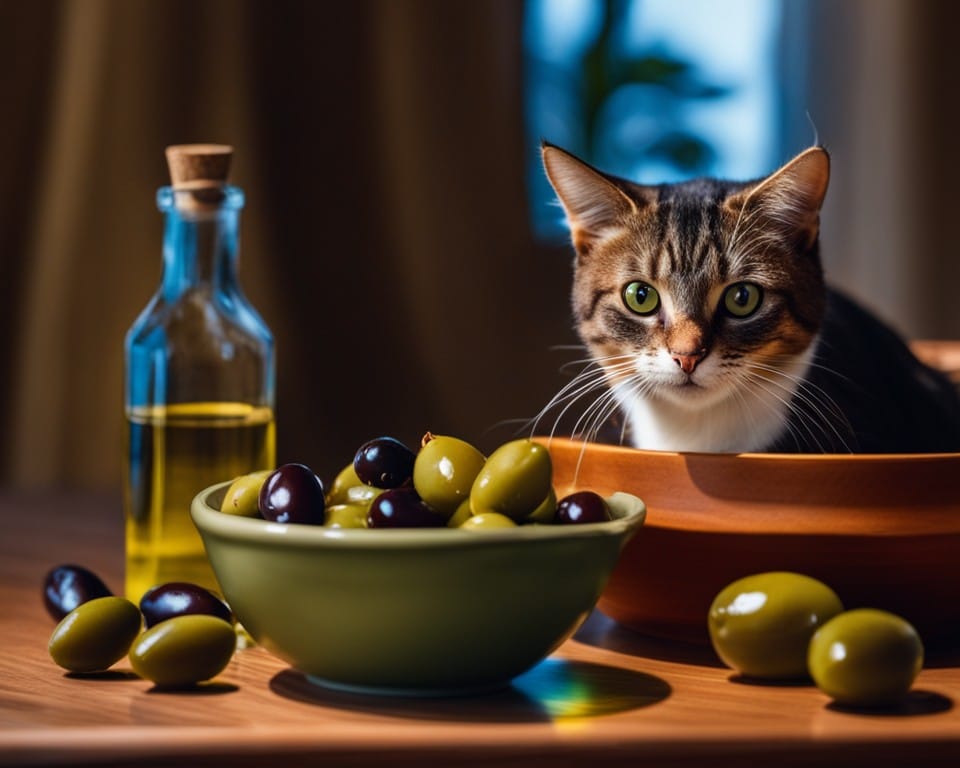
Exploring the Benefits of Olive Oil for Cats
Olive oil is not just for humans but can be great for cats too. It can improve olive oil benefits for cats in many health areas when given in small amounts. Let’s look at how it can be part of your cat’s diet for better health.
Promoting a Healthy Cat Coat
A healthy coat shows a cat is in good shape. Olive oil’s healthy fats can make a healthy cat coat even better. Just a little olive oil in their diet can make their fur softer and shinier, especially if they have dry skin.
Feline Digestive Health
Olive oil benefits for cats also include better digestion. Its natural laxative properties help with constipation. This makes your cat’s digestive process more regular and comfortable.
Olive Oil as an Immune Booster
Olive oil is full of antioxidants, making it a feline immune booster. These antioxidants fight off harmful free radicals and support the immune system. Plus, its anti-inflammatory properties add to its health benefits.
Adding olive oil to your cat’s diet should be balanced to avoid too much. Here’s a table showing the benefits and how much to give for their health.
| Health Aspect | Benefit of Olive Oil | Recommended Usage |
|---|---|---|
| Cat Coat Health | Enhances fur shine & moisturizes skin | Small amounts blended into food |
| Digestive Health | Relieves constipation with laxative effect | Occasional supplement, not a regular diet item |
| Immune System Support | Provides antioxidants & anti-inflammatory effect | Infrequent, measured doses to boost immunity |
The Right Serving Size of Olive Oil for Cats
It’s essential to find the right serving size of olive oil for cats. This balance helps avoid health risks while offering benefits. Stick to safe amounts recommended by vets for the best results.
How Much Is Too Much?
Veterinarians agree: moderation is crucial with olive oil in a cat’s diet. They suggest no more than a quarter teaspoon daily for an adult cat. Too much can cause digestive issues and even lead to pancreatitis.
Guidelines for Safe Olive Oil Inclusion in Cat Diets
If you want to add olive oil to your cat’s meals, follow safe guidelines. These help you avoid risks and make the most of its advantages. A vet can offer advice tailored to your cat’s needs.

| Weight of Cat | Daily Olive Oil Recommendation |
|---|---|
| 5 lbs | 1/8 teaspoon |
| 10 lbs | 1/4 teaspoon |
| 15 lbs and above | 1/4 teaspoon, consult with vet |
Each cat is unique. Some may see benefits from a bit of olive oil, while it might not suit others. Always talk to your vet before introducing new foods to your cat’s diet.
Common Risks Associated with Olive Oil in Cat Diets
Olive oil is famous for its health perks in people. But, when it comes to feline diets, caution is needed. A big worry is the risks of olive oil in cat diets. Too much olive oil can cause issues like diarrhea or vomiting in cats. This can make them uncomfortable, dehydrated, and lead to nutrient imbalances.
Obesity is another major risk. Olive oil is rich in calories and fat. So, small amounts can add a lot of calories. Cats, especially those that stay indoors and are less active, don’t need many calories. Gaining extra weight can lead to problems like diabetes, arthritis, and heart disease. Thus, the feline dietary risks tied to feeding your cat too much olive oil are quite serious.
- Allergic Reactions
- Obesity and Weight Gain
- Digestive Distress
- Pancreatitis Risk
Pancreatitis in cats is another worry when they eat too much fat. Symptoms like tiredness, vomiting, and stomach pain can pop up if a cat gets too much olive oil. Keep an eye on how much olive oil your cat eats. This helps lower the risks of olive oil in cat diets and keeps the benefits.
Some cats might also be allergic to olive oil, though it’s rare. Watching how your cat reacts to olive oil, like with any new food, is key. This way, you can spot any bad reactions early on.
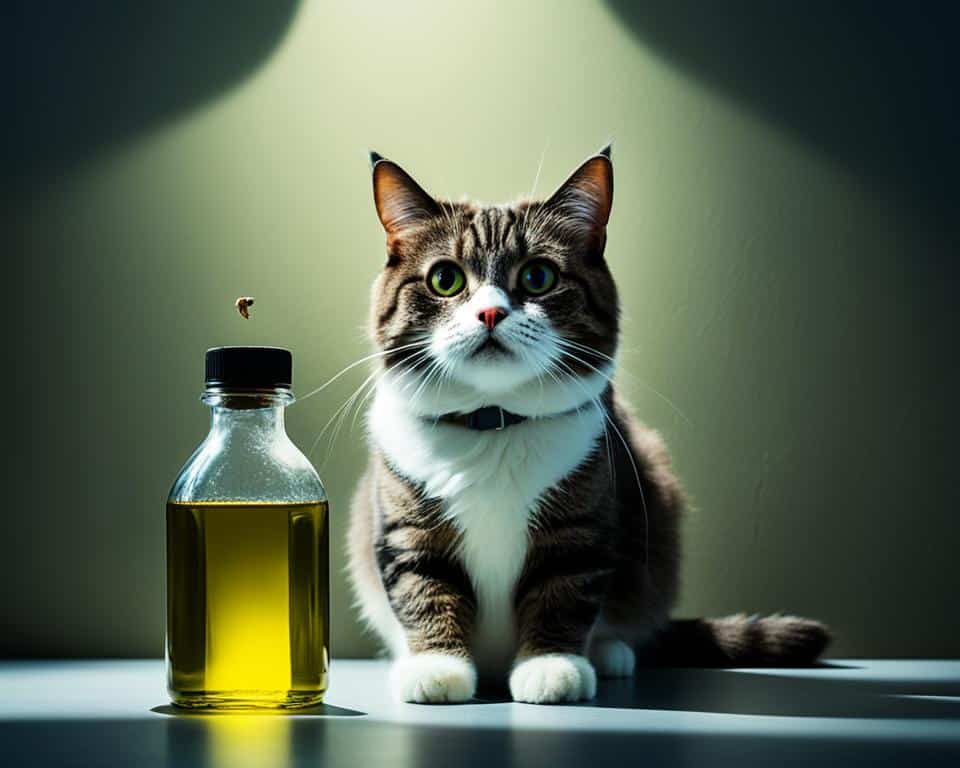
Watch the amount of olive oil you give your cat closely. Notice any changes in their health. Talking to a vet regularly can tell you if adding olive oil to your cat’s diet is wise, and how much to use. Being careful and checking in with your vet is important. It helps avoid feline dietary risks while taking advantage of olive oil’s potential upsides.
Natural Alternatives to Olive Oil for Cat Health
Exploring natural alternatives to olive oil is great for your cat’s diet. These options provide essential healthy fats for cats. They are key in boosting feline nutrition in a safe way.
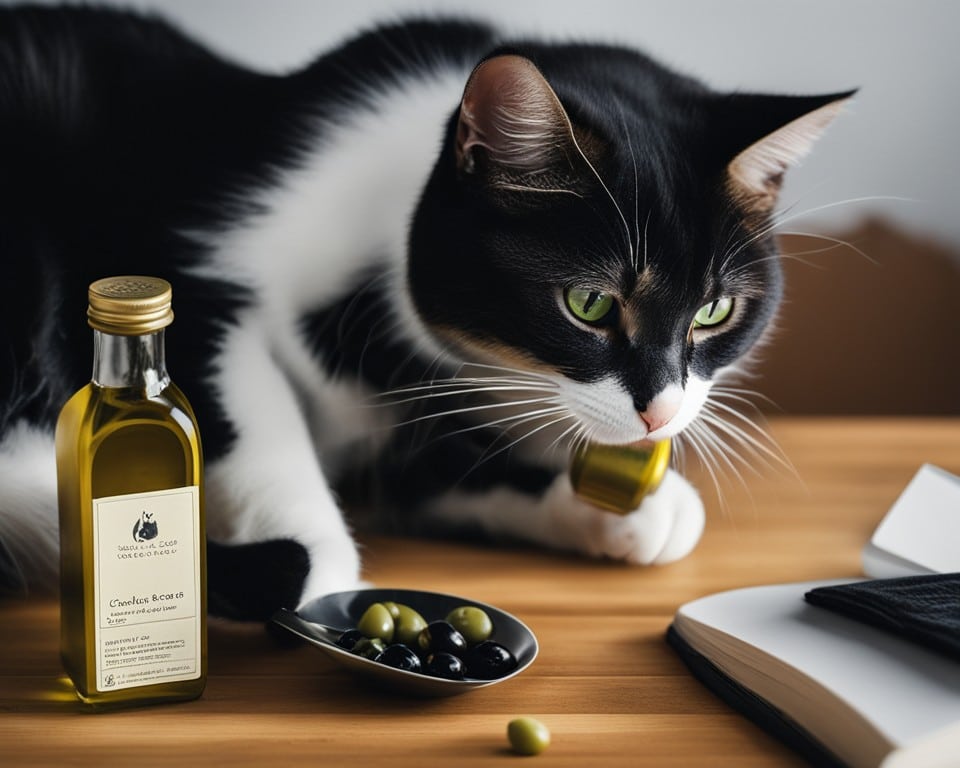
Healthy Fats from Animal Sources
Animal-based fats are vital for a cat’s energy and health. Below is a table with the top animal fat sources. They are excellent alternatives to olive oil for your cat.
| Seafood | Omega-3 Fatty Acids Content | Benefits for Cats |
|---|---|---|
| Salmon | High | Supports skin health, reduces inflammation, aids in cognitive function |
| Sardines | High | Improves coat condition, boosts immune system |
| Mackerel | Moderate to high | Strengthens heart health, maintains smooth joint movement |
| Shrimp | Low to moderate | Promotes overall longevity, enhances antioxidant intake |
Boosting Feline Nutrition Naturally
To boost feline nutrition right, it’s not just about the fat type. It’s about balance and how it fits into your cat’s diet. Omega-3 fatty acids, especially EPA and DHA from fish, cater to a cat’s needs. They offer more than just nutrition, promoting a balanced diet for cats.
When to Consult Your Vet About Olive Oil and Diet Changes
Adding new foods like olive oil to your cat’s diet needs careful thought and a vet’s advice. A vet’s knowledge is crucial, especially when changing your pet’s diet. This could affect their health. If you’re thinking of adding olive oil for health reasons, consult a vet about olive oil use to make sure it’s safe for your cat.
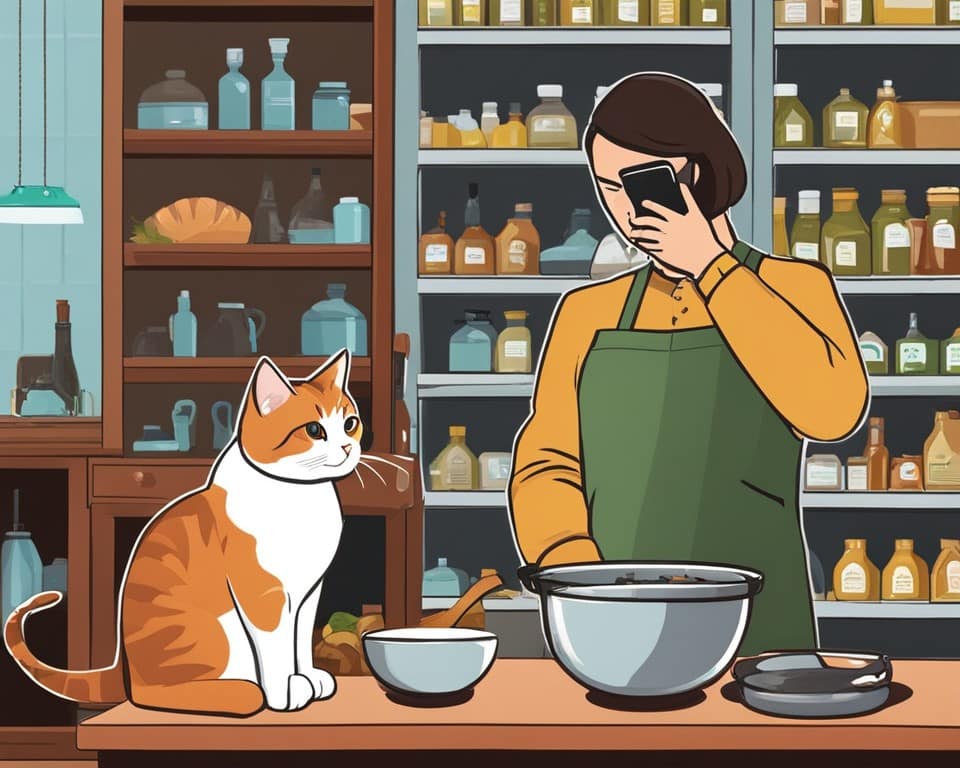
After giving olive oil to your cat, watch closely. This helps spot any bad reactions. These reactions could show your cat is allergic or can’t handle olive oil.
Monitoring Your Cat’s Reaction to New Foods
Watch your cat closely when it first tries olive oil. Look for odd behaviors or signs like a lot of scratching, stomach problems, or not eating much. These signs mean your cat might not be reacting well to the olive oil. If you see these, consult a vet about olive oil right away.
Understanding Allergies and Dietary Intolerances
Allergies in cats are rare but can happen. Signs like itchy, red eyes, skin rashes, or breathing problems need a vet’s help. It’s important to understand feline allergies when you give your cat something new like olive oil. A vet can properly diagnose and suggest what to do next.
| Signs of Allergic Reaction | Recommended Action |
|---|---|
| Itchy skin or rashes | Discontinue olive oil and consult a vet |
| Gastrointestinal upset | Observe and seek vet advice if condition persists |
| Respiratory difficulty | Immediate veterinary consultation |
| Lethargy or loss of appetite | Consult vet for a thorough check-up |
| Swelling around the face or limbs | Seek emergency veterinary care |
By truly understanding feline allergies and talking openly with your vet, you can make adding olive oil to your cat’s diet safe and good for them. Always introduce new foods slowly and with a vet’s guidance. Your cat’s health is at stake.
Conclusion
We’re wrapping up our talk with a note on using olive oil for cats safely. A bit of olive oil can help, but only in small amounts. It’s key to watch how much they have. This way, you avoid health issues due to its high calories.
Cats have their own special diet needs. Olive oil shouldn’t be the main thing they eat. It’s okay to add it to their diet carefully and with a vet’s advice. It can help their coat and stomach. But, too much is not good.
Caring for our cats means working with a vet. They can guide us on using olive oil rightly. This helps our cats get only the best care. It shows how much we love and take care of them.
FAQ
Can cats have olive oil?
Are there any specific pet health tips for introducing olive oil to a cat’s diet?
How does feline nutrition differ from human nutrition?
What are the essential nutrients for cats?
Why should cats have protein-focused diets instead of fatty foods?
What potential impacts does olive oil have on feline health?
How does olive oil promote a healthy coat for cats?
Can olive oil be used as a feline digestive health supplement?
Is olive oil an immune booster for cats?
How much olive oil is too much for cats?
What are some natural alternatives to olive oil for cat health?
How can you boost feline nutrition naturally?
When should I consult my vet about olive oil and diet changes for my cat?
How do you monitor a cat’s reaction to new foods like olive oil?
How can I understand if my cat has allergies or dietary intolerances?
Source Links
- https://www.hillspet.com/cat-care/nutrition-feeding/can-cats-eat-olives-and-olive-oil
- https://exauoliveoil.com/blogs/olive-oil/cats-olive-oil
- https://untamed.com/blogs/nutrition/can-cats-eat-olive-oil


